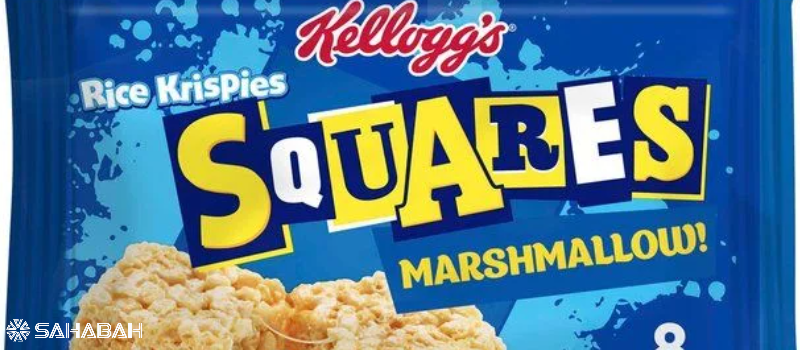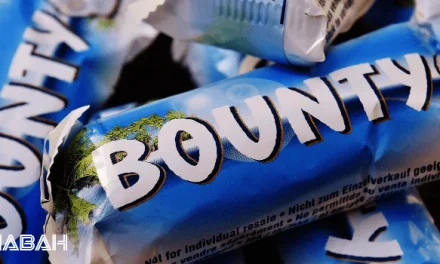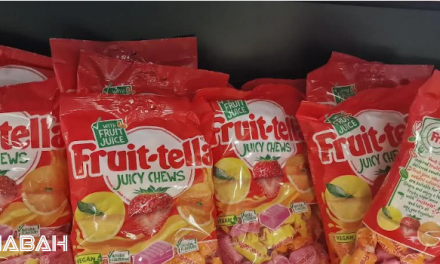Rice Krispies squares, also known as Rice Krispie treats, have been beloved snacks for generations. But are these tasty, chewy bars considered halal? This comprehensive guide will examine the ingredients, production processes, certifications and alternatives to determine if standard Rice Krispies squares meet Islamic dietary standards.
Understanding Halal Food Guidelines
Halal regulations guide what foods and products are permissible under Islamic law. The Arabic word “halal” translates to “permissible or lawful”. To be certified halal, food must follow certain protocols including:
- Cannot contain pork, pork byproducts or alcohol
- Animal-derived ingredients like gelatin must come from halal slaughtered sources
- Processing equipment must be thoroughly cleaned between haram and halal production cycles
Plant foods like fruits, vegetables and grains are generally halal. Animal products and processed foods require closer scrutiny and/or halal certification from an accredited agency.
What are Rice Krispies Squares?
Rice Krispies squares consist of rice cereal chunks adhered together with sugary marshmallow cream, then cut into snack bars. The traditional ingredients are:
- Puffed rice cereal – typically made from rice grain
- Marshmallows – contain beef gelatin and halal sugars
- Margarine or butter
- Vanilla extract
- Salt
Rice Krispies squares are a longstanding homemade treat. But commercially produced versions are also mass marketed under brands like Kellogg’s Rice Krispies Treats.
The base rice cereal and other minor ingredients seem halal-friendly at first glance. However, the gelatin source raises questions for observant Muslims about whether standard Rice Krispies squares are halal or haram.
Potential Issues with Gelatin Sources
One of the top concerns around commercial Rice Krispies squares regards the type of gelatin used. Gelatin acts as the binding agent in the melted marshmallows layering the crispy rice. But gelatin can be derived from non-zabihah sources.
The gelatin might come from:
- Pork – Expressly forbidden (haram) in Islam
- Cattle not slaughtered to halal guidelines
- Ethically questionable farming practices
- Labs via genetic modification
Very few mass market marshmallow brands have halal or kosher certification. Large companies rarely disclose gelatin sources. So Muslims cannot confirm standard marshmallow gelatin meets halal standards without proper verification.
Cross-Contamination Risks
Beyond direct ingredients, potential cross-contamination poses another hurdle for Rice Krispies squares being halal certified. Equipment shared across products with haram ingredients may transfer those elements and make otherwise halal goods no longer permissible.
For example, facilities that produce foods with pork gelatin on shared lines run the risk of pork residue crossing over into production of Rice Krispies squares. Major manufacturers must adhere to thorough cleaning protocols between item runs – which requires dedicated halal-only equipment.
Lack of Halal Certification
Currently, no major brands of Rice Krispies squares like Kellogg’s Rice Krispies Treats have halal certification in North America, the UK or Australia.
Small-batch gourmet marshmallow companies are beginning to provide halal and gelatin-free alternatives, typically with kosher or halal certification. Large Middle Eastern brands offer halal candies and sweets. But mainstream, nationally distributed rice cereal treats lack official halal approval at this time.
Making Rice Krispies Squares at Home
Seeking to make halal Rice Krispies squares at home? That presents an option for avoiding questionable commercial ingredients. Opting for gelatin-free marshmallows or substitutes allows Muslims to control the sourcing themselves.
Home recipes can use:
- Leaf/fruit-based gelatins like agar flakes
- Marshmallow crème made with tapioca starch
- Gluten-free crackers instead of cereal
Pair plant-based gel options with rice cereal verified as untouched by haram cross-contamination, and homemade can achieve halal status relatively smoothly.
Verdict: Rice Krispies Squares Likely Not Halal
Unfortunately, most conventionally produced Rice Krispies squares fail the halal test currently. The suspected use of non-zabihah cattle gelatin without halal certification or transparency means Muslims cannot consider mainstream brands as definitively permissible.
Plus the high probability of shared equipment with no thorough cleaning protocols handling haram ingredients leads to too many questions about cross-contamination.
Muslims seeking verifiably halal rice cereal treats can find some specialty alternatives – but the options are limited compared to conventional mass market squares. Homemade also works, provided fully vetted ingredients.
In summary – standard commercial Rice Krispies squares cannot confidently be classified as halal foods at this time. Carefully sourced alternatives do exist, but traditional Rice Krispies squares remain a highly questionable choice for halal diets.
Brands Offering Halal Rice Cereal Treats
While they remain a niche category, more manufacturers recognize demand for halal gelatin alternatives in products like Rice Krispies squares.
Some promising options include:
Safa Halal Marshmallows
A pioneer in the halal gelatin substitute space, Safa Foods offers marshmallows, marshmallow crème and melts made from fish gelatin and plant-based agar. Their products have ISNA and JAKIM certification to meet halal dietary standards.
My Gelatin Free Marshmallows
Based in Michigan, this startup launched halal and vegan marshmallows with pectin instead of bovine gelatin. My Gelatin Free uses dedicated equipment for halal production and has plans to pursue official certification in late 2023. Their “melts” work well for making halal Rice Krispie treats.
Rocky Mountain Halal Sweets
Specializing in gelatin-free Turkish delights and other Eastern confections, Rocky Mountain Halal offers custom manufacturing for companies seeking high-quality halal sweets production. Their marshmallow options can substitute into DIY Rice Krispies squares.
Icky Sticky El Paso
This fledgling Texas company focuses entirely on halal and vegetarian candies and snacks. Their product list shows halal-certified marshmallows amidst items like caramels, brittles, and chocolate – indicating serious commitment to gelatin-free options.
Annie’s Homegrown Rice Crispy Treats
While not specifically targeting the halal market yet, Annie’s has strong brand reputation for quality ingredients and responsible sourcing that align well with halal principles. Their organic crackers skipping rice could work for homemade squares too.
Outlook for Halal Rice Cereal Treats Going Forward
The market and options for verifiably halal ready-to-eat snacks like marshmallow-coated rice cereal bars keeps expanding every year.
North American and European Muslim populations continue growing, driving more demand for certified halal sweets. Major candy brands are initiating more transparency around sourcing and equipment handling. And niche startups centering entirely around halal, ethically produced confections are launching annually.
So while certified halal Rice Krispies squares remain scarce currently, the landscape looks promising for better alternatives emerging in coming years as customer demand increases. Major manufacturers will likely have to pursue halal compliance to compete as options tailored specifically for Islamic consumers gain more ground.
The companies listed above represent the vanguard of this movement. For Muslims seeking the tasty enjoyment of chewy rice cereal treats without sacrificing halal diet principles, these brands offer peace of mind today. And they pave the wave for bigger players to follow suit in delivering even more certified halal offerings in future.
The Takeaway
Mainstream Rice Krispies squares still fall short of meeting halal standards presently. Uncertainty around commercial gelatin sources plus cross-contamination risks mean traditional rice cereal treats get avoided by observant Muslims.
But thanks to a growing market sector catering offerings specifically to halal consumers, satisfying alternatives keep emerging. The specialty brands listed here allow Muslims to enjoy classic chewy marshmallow-rice snacks without apprehension over haram ingredients and questionable manufacturing processes tainting that experience.
So for Muslims who thought they would have to forego beloved melty, sweet cereal bars to maintain halal integrity – fear not! Options now exist to let you indulge happily today, with more set to come in future.
Frequently Asked Questions: Are Rice Krispies Squares Halal?
Yes, Rice Krispies Squares are halal. It is important to check the ingredients list and look for any haram ingredients.
Are Kellogg’s Rice Krispies Squares considered halal or haram?
Kellogg’s Rice Krispies Squares are considered halal. However, it is important to always check the ingredients list to ensure there are no haram ingredients present.
Are Rice Krispies considered halal?
Yes, Rice Krispies are considered halal. It is crucial to verify the ingredient list for any haram components before consuming.
Can you suggest an alternative to Rice Krispies Squares if I’m looking for a halal option?
Some alternative halal crispy snack options include homemade rice crispy treats using halal-certified ingredients, or looking for other halal-certified crispy snack products available in the market.
What ingredients should I watch out for to ensure that Rice Krispies Squares are halal?
When checking the ingredients, be mindful of any non-halal components such as pork gelatine, non-halal flavorings, or any haram additives.
Is Kellogg’s a reliable brand for halal products like Rice Krispies?
Kellogg’s is a reputable brand and has a range of halal-certified products. However, it is always recommended to confirm the halal status by checking the certification or the ingredients list.
Are Rice Krispies Squares permissible in Islam?
Yes, Rice Krispies Squares are permissible in Islam, provided they do not contain any haram ingredients. It is crucial to check the packaging for halal certification or inspect the ingredient list.
How can I confirm if Rice Krispies are halal in 2022?
To confirm the halal status of Rice Krispies in 2022, check for the most recent halal certification on the packaging, or review the ingredient list for any haram ingredients.
Can I consume Rice Krispies Squares if they contain Kellogg’s rice?
Yes, you can consume Rice Krispies Squares containing Kellogg’s rice, as long as the overall product is verified to be halal with no haram ingredients.
How important is it to check the ingredient list of Rice Krispies Squares to ensure they are halal?
It is crucial to check the ingredient list of Rice Krispies Squares to ensure they are halal. Look for any potential haram ingredients or additives before consuming the product.





